Reader Le Hoai Thu asked: “A friend sent me the proverb “To pickle melons, you must press them down with stones, to sow rice seedlings, you must prepare them at noon”, and wondered what “preparing them at noon” meant.
I am a person who likes to learn idioms and proverbs, but this is the first time I have heard this sentence. Looking up the dictionary, I found that the word “noon” only means noon, or already noon (compared to still early). This meaning is very difficult to understand when applied to the proverb. I had to delay with my friend, and today I would like to send this question to the “Chat ke chuyen lo nghia” column, asking for an expert to answer.
Thank you very much".
Answer: There are two out of dozens of dictionaries we have on hand that record and explain the proverb that reader Le Hoai Thu is asking about.
- The dictionary of Vietnamese idioms and proverbs (Vu Dung - Vu Thuy Anh - Vu Quang Hao) explains: "To pickle melons, you must press down on rocks, and to sow rice seedlings, you must prepare them at noon. An experience in pickling melons and sowing rice seedlings: after salting, you must put a heavy rock on top so that the melons are submerged, the salt water prevents the melons from rotting (khu); when sowing rice seedlings, you must prepare them at noon, sow them in the cool afternoon, and wait until the cool night for the seedlings to take root quickly, avoiding the harsh sunlight."
- The dictionary of Vietnamese idioms, proverbs and folk songs (Viet Chuong) explains: "To pickle melons, you must press them down with stones, to sow rice seedlings, you must prepare them at noon (proverb): In life, everything has its own rules, only then will it bring good results. If you do things haphazardly, without calculating the pros and cons, you will easily encounter bitter failure.
When pickling cucumbers, people have to press down on a big rock so that the cucumbers underneath will pickle faster. If you pickle cucumbers without a rock, they will float and rot in a few days.
Just like sowing rice seeds on the rice fields, we should sow them at noon, so that we can predict whether the weather will be sunny or dry that day. If it rains right after sowing, it is considered a complete failure.
These are valuable experiences of our ancestors".
Regarding the first part, there is nothing difficult to understand, and the dictionary’s explanation is basically correct. However, regarding the second part, the word “noon” in “soanh nao” is understood as “prepare at noon, sow in the cool afternoon”, or “sow at noon” is a type of “forced words to seize reason”. Because if explained like Vu Dung Group, then wouldn’t it be impossible to prepare in the “early morning” to sow in the afternoon? As for Viet Chuong, explaining that “rice should be sown at noon” is unscientific .
So, what does “prepare lunch” mean here?
Actually, "noon" in the local language (Central region) means land for sowing rice.
Nghe dictionary (Tran Huu Thung - Thai Kim Dinh) records: "noon: Rice field, rice field noon. Example: April 8th, no rain/ Father and son leave the basket, leave the noon without plowing".
The Vietnamese Proverb Dictionary (Nguyen Duc Duong) has collected the proverb “Ruong ga harrow, noon gia troi”, but it cannot explain it, and is classified as “Unclear meaning”. However, according to the meaning we have quoted above, “tru” here is the land for sowing rice; “troi” means turning, raking, and leveling it over and over again to make it smooth and flat; “gia” here means to do it very carefully, the more carefully the better. “Ruong ga harrow” means the field must be harrowed very carefully to produce good rice; “tru gia troi” means the land for sowing rice must be trampled and pounded until it is smooth and free of weeds to produce good rice.
Although “noon ma” is a dialect, the word still appears occasionally in the press. For example:
- "According to Mr. Nguyen Van Hung, head of Xuan Hoa village, the amount of rice fields leveled by the construction unit is rice planting land (rice planting land) with a total area of over 15,000m2 granted by the People's Committee of Thuy Van commune to 97 households in Xuan Hoa village..."; "The rice fields of the villagers are all divided equally according to Decree 64/CP, yet we were refused compensation even though previously (in 2012-NV), more than 5,000m2 of rice planting land (divided by the People's Committee of Thuy Van commune according to Decree 64/CP) of 40 households in the commune were compensated by the project owner of the Pham Van Dong - Thuy Duong - Thuan An road construction project with a total amount of 420 million VND...". (Hundreds of households are upset because of the investor's... "empty promises" - CAND newspaper - May 23, 2014).
- "In that situation, localities and the agricultural sector should organize propaganda and instruct people to immediately implement the plan of "sending seedlings at noon" for long-term varieties to plant about 20% of the province's total area". (Focus on flood control, sending seedlings at noon - Thua Thien Hue Newspaper - December 26, 2016).
Thus, when the word "trua" is found to mean land for sowing rice, land specialized in sowing rice ( Thanh Hoa people have a region called "nac ma"), the clause "sowing rice must prepare noon" is understood to mean that when sowing rice, the land for sowing rice must be carefully prepared (prepared, prepared); just like when pickling or preserving melons, there must be rocks to press down so that the melons will be delicious.
Hoang Trinh Son (Contributor)
Source: https://baothanhhoa.vn/vai-ma-phai-soan-trua-nghia-la-gi-240734.htm



![[Photo] General Secretary To Lam receives US Ambassador to Vietnam Marc Knapper](https://vphoto.vietnam.vn/thumb/1200x675/vietnam/resource/IMAGE/2025/9/29/c8fd0761aa184da7814aee57d87c49b3)
![[Photo] Solemn opening of the 12th Military Party Congress for the 2025-2030 term](https://vphoto.vietnam.vn/thumb/1200x675/vietnam/resource/IMAGE/2025/9/30/2cd383b3130d41a1a4b5ace0d5eb989d)

![[Photo] General Secretary To Lam, Secretary of the Central Military Commission attends the 12th Party Congress of the Army](https://vphoto.vietnam.vn/thumb/1200x675/vietnam/resource/IMAGE/2025/9/30/9b63aaa37ddb472ead84e3870a8ae825)
![[Photo] The 1st Congress of Phu Tho Provincial Party Committee, term 2025-2030](https://vphoto.vietnam.vn/thumb/1200x675/vietnam/resource/IMAGE/2025/9/30/1507da06216649bba8a1ce6251816820)

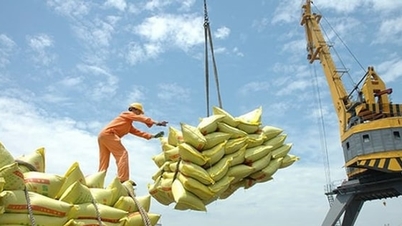





![[Photo] National Assembly Chairman Tran Thanh Man chairs the 8th Conference of full-time National Assembly deputies](https://vphoto.vietnam.vn/thumb/402x226/vietnam/resource/IMAGE/2025/9/29/2c21459bc38d44ffaacd679ab9a0477c)










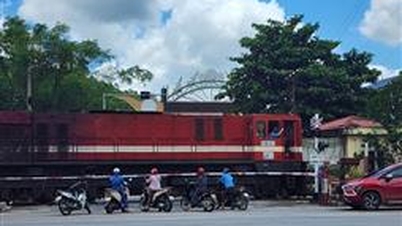











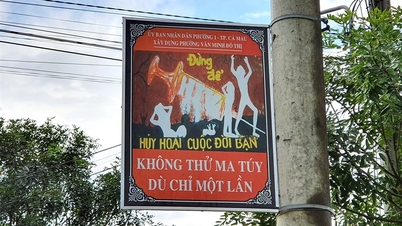
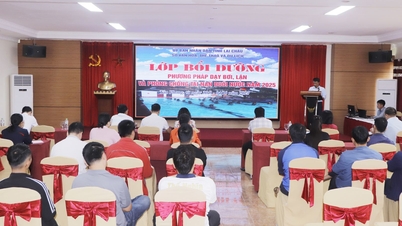
![[Photo] Many streets in Hanoi were flooded due to the effects of storm Bualoi](https://vphoto.vietnam.vn/thumb/1200x675/vietnam/resource/IMAGE/2025/9/29/18b658aa0fa2495c927ade4bbe0096df)
![[Photo] General Secretary To Lam attends the ceremony to celebrate the 80th anniversary of the post and telecommunications sector and the 66th anniversary of the science and technology sector.](https://vphoto.vietnam.vn/thumb/1200x675/vietnam/resource/IMAGE/2025/9/29/8e86b39b8fe44121a2b14a031f4cef46)




































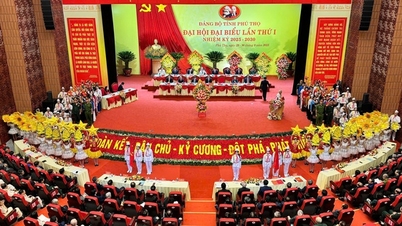
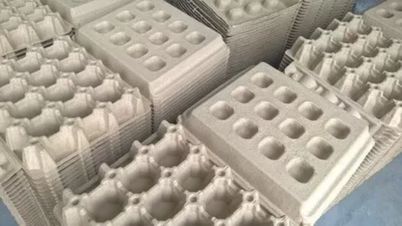


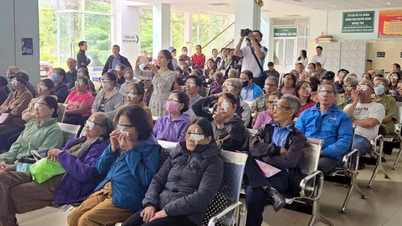

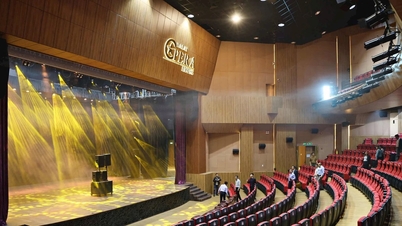



















Comment (0)